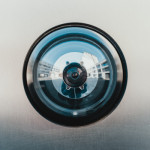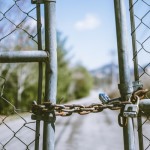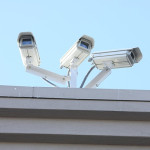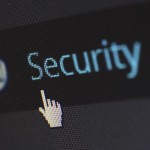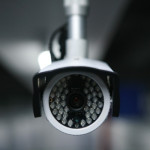Halloween Safety & Security Tips
Halloween is almost here, and this year it falls in the middle of the week. That makes your commute home a bit trickier as children may be roaming the streets already. And although it’s always important to watch for pedestrians, it is especially crucial on Halloween.
Aside from being safe on the road, it’s imperative to mind your children and your home. Here are some Halloween security tips to help you enjoy a safe and happy Halloween.
Trick-Or-Treating
Although going door to door collecting candy and treats from strangers is a Halloween tradition, it poses safety risks.
- Check All Treats Before Eating – All treats should be inspected by adults before children eat them. To be safe, toss anything that looks tampered with and anything that doesn’t come in a pre-wrapped package.
- Light Up The Night – Make sure your children are easily visible with flashlights, glow sticks, or even reflective tape. To make it easier, try using transparent bags for your children’s treats and toss a glow stick in there. That way, your kids have one less thing to carry and they are still easily visible.
- Consider An Alternative – If you would rather your children not go trick-or-treating, you may want to consider an alternative such as a haunted house or hayride. Or you can visit friends or family so that you need not worry about what they get in their bag.
- Host your own Halloween – Or you can simply host your own Halloween event at your home. This way, you are in the comfort of your own home and can keep an eye on your children and guests.
A Night On The Town
Leaving a porch light on when you leave for the night may not be the best idea. On Halloween, that is commonly known as a sign to come knocking for treats, and thus, people will soon realize that no one is home. Here are some ways you can protect your home while you are out.
Lights
Be sure to keep your home well lit. This will deter potential intruders or pranksters as it will appear as if someone is home and still awake. Outdoor lighting will eliminate shadows and hiding places.
Security System
Engage your security system if you have one. If you do not, now would be a great time to invest in a solid home security camera system.
- Settings – Review your camera settings and adjust accordingly. Keep your cameras focused on potential entryways (doors, windows), but you may also want a view of the streets and other areas around your home – pranksters may attack from any or all sides.
- Timers – Make use of light timers if you have them. Set timers to have specific rooms light up every now and then. For example, leave the living room light and television on but have the kitchen light turn on and off occasionally so it appears that someone is getting up for a snack.
- Arm Your Security System – Sometimes we may forget so it’s worth the reminder to set the alarm and lock your doors and windows before you leave.
Cell Phones
For most of us, cell phones act as our lifeline and have become essentials alongside our wallets and keys. If your child does not have a cell phone and will not be with you on Halloween, be sure you have the phone number for the supervising adult or someone who will be accompanying your child. You may even let your child borrow your phone for the night so that you have a way of keeping in contact.
- Charge It – Whether it’s your own phone or your child’s or both, be sure that all phones are fully charged before heading out. If your child is going out without you, you may want to check the signal reception where he/she may be.
- Check Your Security System – Your security system most likely enables remote viewing via an app or device, and should alert you of any suspicious activity. If alerts are not enabled, be sure to check in periodically.
Staying In
Although we may hate to imagine that persons with bad intentions may target us on Halloween, it is always a possibility. If you’d like, you can leave a bowl of candy on the porch with a sign that tells children how many they can take and that they are under surveillance. If you sit on the porch and hand out candy, keep your cell phone close and sit with a friend or family member (safety in numbers).
In addition to the aforementioned security tips, it is always in your best interest to use common sense on Halloween and every day. Make sure children stay away from strange neighborhoods and that they know they should not go inside someone’s home. If possible, travel with a group for maximum safety.
Do you have any other Halloween safety tips to share? Connect with us on Facebook, Google+, Twitter, LinkedIn, and Pinterest.
Invest in an affordable security camera system to protect your home. Visit SecurityCamExpert.com to browse our selection or call 888-203-6294 to discuss your options.
Cyber Security Awareness For Consumers
Cyber security is extremely important, especially in this day and age, which is why October is recognized as National Cyber Security Awareness Month. Without the proper safeguards in place, your identity and personal data are at risk. Here are some cyber security tips to help raise awareness and protect you from cybercriminals.
Watch What You Share
Cybercriminals are using more advanced tactics to gain information. Attacks are designed based on extensive research of the information you share online. Cybercriminals scour social media for various personal details, from workplace and job titles to friends and activities. They use this information to manipulate unsuspecting victims, a tactic known as social engineering.
Examine Your URLs
Pay close attention to URLs. As mentioned, criminals are using smarter approaches. They use branded emails with logos and fonts that look like legitimate retailers to get you to click on malicious links.
To safeguard against these scams and avoid being redirected to a fake site, always type the retailer’s address into your browser. And always make sure the site begins with https:// (as opposed to http://). The “s” stands for secure and makes a big difference in your online safety.
Secure Payment Methods
Whenever you enter your credit or debit card details into an online form, you are susceptible to interception from cyber criminals. Dodge these risks by setting up a dedicated online shopping account with strict credit and overdraft limits, and with only enough money to buy what you need.
Listen To Your Suspicions
Trust your instinct. If it seems suspicious, don’t use it. Make sure you are keeping track of the retailers you are expecting shipments from. If you receive an email that contains tracking information from a courier service or retailer you have not used, do not open it. It will likely contain a tracking URL which is a malicious link in disguise. And the same goes for attachments as these could contain malicious code. To err on the safe side, manually type the courier service website into your browser.
Fallen Victim? Take Immediate Action
If you think you may have fallen victim to cyber crime, act fast!
- Report It To The Police
Many cases go unreported every year, lending to the success rate of these cyber crimes. By reporting it to police, you can aid cyber criminal investigations help to shut down these operations for good.
- Report It To Your Bank
As soon as you notice unusual account behavior or suspect something may be wrong, contact your bank and have your card cancelled immediately. In some cases, depending on the circumstance, you may be able to reverse the fraudulent charges and recover your money.
- Report It To The Business
The business you thought you were buying from would benefit from knowing they are being impersonated online as you may not be the only victim. The business has the resources to track down the perpetrators and is likely familiar with the processes of getting suspicious websites blacklisted or shut down.
- Do Not Negotiate
Ransomware attacks usually involve locking you out of your PC and asking for a ransom (in untraceable currencies like Bitcoin) to regain control. If you give in and pay the ransom, you will be identified as a soft target and they will be back.
Do you have any cyber security tips to share? Connect with us on Facebook, Google+, Twitter, LinkedIn, and Pinterest.
For your security cameras and CCTV video surveillance needs, please visit SecurityCamExpert.com today! Call 888-203-6294 to request a free quote or schedule a site survey.
Protect Your IP Surveillance System
These days, IP security cameras are much easier to use and are more commonly utilized for home security. Whether home owners want to watch their property or their pets, IP security cameras seem to be the surveillance solution of choice.
Unfortunately, these home security systems are often targeted by hackers and bots. To better safeguard your IP cameras and privacy, check out these helpful IP security camera tips.
Update Firmware
Modern IP security cameras provide user-upgradeable firmware. When a security vulnerability is found, the manufacturer will fix it by issuing a firmware update. If your cameras are operating with an older version, they may be vulnerable to exploitation from hackers or online voyeurs. Always be sure that your firmware is up to date and routinely check for updates to protect your system.
Keep Cameras Local
The concept is simple – If you are worried about your live feed ending up on the internet, do not connect your cameras to the internet.
To protect your privacy, keep your security cameras on a local network and assign them non-routable internal IP addresses (ex. 192.168.0.5 or the like). But even then, your cameras may still be exposed by camera software that sets up port forwarding or uses UPNP to expose your cameras to the internet. Make sure your cameras are set up on local-only mode – consult your installer or check the manufacturer’s website to learn how.
Assign Passwords To Cameras
All too often, users forget to add password protection on their IP cameras, and sadly, this is not usually turned on by default. Without this, IP cameras are left wide open and vulnerable.
Luckily, most cameras offer at least some form of basic authentication, and although it may not be much, it is better than nothing. Remember to protect your cameras by assigning a username and strong password and changing it periodically.
Change Defaults
We cannot stress this enough – Always, always, ALWAYS change the default usernames and password for your devices. In case you didn’t know, the default admin name and password for your IP camera is usually available on the manufacturer’s website in the support section. That said, if you don’t change these defaults, anyone could potentially access your security system, view your feeds, and control your cameras.
WPA2 Encryption
If you’re using a wireless camera, you should only connect it to a WPA2-encrypted wireless network. This will minimize the risk of wireless eavesdroppers connecting to your network and accessing your video feeds.
Be Mindful Of Locations
Don’t place IP security cameras in areas of your home that you wouldn’t feel comfortable with strangers seeing. Regardless of the security measures to protect your camera feeds, there is always a possibility of getting blind-sided by a Zero-Day vulnerability that hasn’t been found by the manufacturer yet.
Share your own tips and experiences with us on Facebook, Google+, Twitter, LinkedIn, and Pinterest. For a wide selection of IP security cameras and more, visit SecurityCamExpert.com or call 888-203-6294 today!
Risky Home Security Measures
Home security measures are meant to protect you from unwanted intruders, but sometimes these measures can backfire. Here are some common home security measures and mistakes you should avoid.
Privacy Gates & Fences
While these may be put in place to preserve your privacy, they can actually provide cover and hiding spots for burglars. Intruders can benefit from the privacy provided and work on forcing entry into your home unseen.
While every house and property is unique, try to plan your fencing in a way that allows the main entryway to be visible from the street. Since doors are a common entry point for burglars, this can help to make it more difficult for criminals to gain access without being detected.
Hidden Keys
These are helpful if you have people checking in on your home or in the event you accidentally lock yourself out. However, most homeowners choose obvious spots for hiding keys, which burglars are keen to and will immediately check.
Generally it’s better to hide the house key further from the home in less obvious spots. And a disguised item, such as a rock, is only useful if hidden among similar items.
Bushes
Your landscaping can make your home more or less friendly for intruders. If you have bushes or trees right up against the side of your home, they can provide cover in the same way that a fence might.
You don’t have to give up on your plants all together, but it is important to keep their placement in consideration. Choose low-height or thin-growing shrubbery immediately beside your home while keeping denser and taller plants further out.
Static Lights
Most homeowners install outdoor lighting for home security, whether they turn them on at the end of the day, or place a timer or light sensor so that they turn on automatically at night. These lights provides illumination for the yard, however, these can also create dense pockets of shadows that make for great hiding spots.
Motion sensor lights are a better alternative. They will provide outdoor lighting while shocking anyone who is prowling around your property. Motion sensor lights will also be used less often, resulting in lower electrical bills and longer lived light bulbs.
Valuables
We often forget that windows work both ways, thus intruders can see inside our homes. This is precisely why we should never leave our valuables in plain sight. Especially on the ground floor, be mindful of things like jewelry that may be left out on dressers and possibly visible from the windows. Televisions may be hard to position out of view, so remember to pull the shades or blinds shut in the evening.
Packaging Disposal
Packaging from an expensive item, such as a television or laptop, should not be set by the curb. This tells thieves that there is an expensive item in your home. Instead, take time to break down the box and cut it into smaller pieces to disguise what it once held.
Alarm System
Alarm systems are a smart tool, but be sure that your installers mount the control pad in a location that is not visible from a first floor window. Potential burglars may be able to see whether or not the alarm system is activated. This is especially true at night when the green or red status light is clearly visible in a darkened home.
Social Media
Social media is a fun way to stay in touch with friends and share travel experiences, but it should be done after the trip.
Because social media is mostly a public platform, you don’t want to announce to the world that you’ll be out of town. Burglars can easily search common keywords (ex. trip, travel, vacation) to potentially find out when homes will be empty.
To avoid this, share your wonderful photos and stories about your trip after you return home. IF you must share, be sure you are sharing it privately so only your close friends and family can see.
Mail Pileups
Piled up mail and newspapers scream that homeowners are away, and this is visible to anyone who simply drives by your home. Before you leave, contact your local post office and/or newspaper to temporarily suspend service. Or you can ask a friend or neighbor to pick up any mail or newspapers while you’re away. Activity around the front of the home will help to make your home look occupied as well.
Ladder Access
Most of these tips have addressed first-floor issues because it’s much more difficult to break-in through the second story. However, some homeowners may not know that they are providing simple and easy access to their second floor. Refrain from leaving your ladder in the yard where it can be easily seen and used by burglars. Instead, store it away in a garage or locked tool shed.
Assuming Daytime Is Safe
Break-ins are often associated with nighttime, but daytime break-ins are quite common. This is because burglars prefer an empty home, and during the day, most occupants are at school or work. With that said, the appropriate measures should be taken. Whenever you’re away from home, day or night, remember to turn your alarm systems on, keep an eye out for suspicious activity, and close and lock all doors and windows.
Do you have any other home security tips to share? Connect with us on Facebook, Google+, Twitter, LinkedIn, and Pinterest.
Visit SecurityCamExpert.com to browse our extensive selection of quality security cameras, CCTV surveillance packages and security equipment for your home or business. If you have any questions or would like a free quote, please feel free to contact us 888-203-6294.
Video Surveillance Maintenance
Implementing an advanced, top quality CCTV surveillance system can greatly improve your overall security. However, if not installed and maintained properly, it could ultimately be useless. In order to preserve its effectiveness, be sure your surveillance system is professionally installed and that you routinely complete maintenance checks.
Employ this video surveillance maintenance checklist to keep your system functioning optimally.
- Clean Camera Lenses
A dirty camera lens will compromise your video footage. Smudges, dust, water-spots and other undesirable elements can occur. To avoid this, check both indoor and outdoor camera lenses to ensure they are clean. Ideally, to clean your camera lenses, you should start with a compressed air can to blow the lens and remove loose debris, and then use a microfiber brush to gently wipe the lenses.
- Landscape
When installing outdoor cameras, be sure there are no obstructions. If you must install an outdoor camera near trees or other greenery, be sure to trim the landscape to keep the field of view clear.
- Camera Housing
Security camera housing is meant to protect your camera from rain, wind, and other elements, but sometimes it can be compromised. To ensure that the housing is functioning properly, open it to check for signs of water, dirt, and condensation. If you see any of these, it may be time to invest in new, better camera enclosures.
- Check For Corrosion
Be sure to monitor your connectors for any signs of corrosion. If you find that any are corroded, replace them immediately as this can cause the equipment to short out.
- Check Cable Connections
As you check the connectors for corrosion, you want to also make sure that all cable connectors are receiving power and watch for signs of wear and tear. If you find any exposed wire, replace it immediately.
- Check The Power Supply
To ensure that there is no loss of power, check your power supplies and UPS (be sure batteries are fully charged and no warning lights are on). You may also want to invest in a voltmeter to guarantee that your surveillance cameras are receiving their recommended power requirements.
- Dust Your DVR
As with any dormant device, your DVR may begin collecting dust. You should wipe this clean with a microfiber cloth (or use a blower to dust the crevices) regularly to prevent any negative effect on your DVR’s performance.
- Emptying The Hard Drive
Depending on your hard drive capacity, you will need to periodically back up and delete your video footage once it fills up.
- Verify The Recording Function At Least Once Per Week
Set a weekly reminder to check on your camera recordings to make sure they are working. It is better to take preventative measures so that you don’t miss any important footage.
- Periodically Review Camera Position Set Ups
Make sure your security system is providing optimal surveillance by checking camera locations and focus. If there are any areas that are going unmonitored, you may consider adding additional cameras.
- Check The Lighting
Be sure that your cameras are receiving adequate lighting to produce clear images for easy identification. Additionally, make sure cameras are not being washed out by sunlight during the day.
- Check And Remove Any Obstructions
As mentioned, you want your camera to have an unobstructed view. Should a hidden camera become covered by a banner or poster, be sure to remove and/or relocate them.
- Date And Time
Check the date and time on a daily basis for accuracy. A brief power outage may require the date and time to be set again.
- Signage
Visible surveillance signage can act as a deterrent on its own. It lets potential intruders know that you are employing a video surveillance system and may discourage them from targeting your property.
- Secure A Comprehensive Maintenance Coverage
Many service level agreements to maintain your surveillance system are available. They may include things like inspection, loaner gear, emergency response, extended warranty coverage, and more.
Have any other maintenance tips to share? Connect with us on Facebook, Google+, Twitter, LinkedIn, and Pinterest.
If you need help choosing the CCTV surveillance system and security cameras that will best suit your needs, please feel free to contact us at 888-203-6294 or visit SecurityCamExpert.com today!
Safety Tips For 4th Of July Holiday
With Independence Day fast approaching, many of us are making plans to celebrate. Whether it’s a family outing to the beach or a fireworks show, or simply a backyard barbecue at home, heed these safety tips to keep yourself and your loved ones safe.
Fireworks Safety
Fireworks are safest when admired from afar (at least 500 feet). Look for local public fireworks displays and try to secure a prime spot early (as these tend to be crowded events). If your city allows fireworks and you decide to light them at home, please follow these safety precautions:
- Keep fireworks away from small children.
- Follow the instructions on the packaging.
- Keep a water supply close by (better safe than sorry).
- The person igniting the fireworks should always wear eye protection.
- Light only one firework at a time.
- Never attempt to relight a “dud.”
- Store fireworks in a cool, dry place and away from children and pets.
- Never throw or point a firework toward people, animals, vehicles, structures, or flammable materials.
- Leave any area immediately where untrained amateurs are using fireworks.
Grilling Safety
What is summer without backyard barbecues? As much as we love grilling under the sun, injuries are all too common when using backyard charcoal or gas grills. To prevent injury and maintain safety, follow these tips:
- A barbecue grill that is in use should always be supervised.
- Never grill indoors (ex. inside a house, camper, tent or any enclosed area).
- Make sure everyone (including pets) stays away from the grill.
- Keep the grill out in the open, away from the house, the deck, tree branches, or anything that could catch fire.
- For the chef’s safety, use the long-handled tools especially made for cooking on the grill.
- Never add charcoal starter fluid when coals have already been ignited.
- Always follow the manufacturer’s instructions when using grills.
Beach Safety
If your beach visit includes swimming in the ocean, be sure to learn how to swim in the surf within the designated swimming area and only when/where a lifeguard is present. In addition, be sure to obey all instructions and orders from lifeguards.
- Check local weather conditions and look for any warning signs or flags that may be posted.
- Always swim sober and with a buddy.
- Young children and inexperienced swimmers should wear Coast Guard- approved life jackets.
- Protect the neck – don’t dive head first. Walk carefully into open waters.
- Keep a close eye and constant attention on children and adults while at the beach. Waves can cause someone to lose their footing, even in shallow water.
- Watch for aquatic life – water plants and animals may be dangerous. Avoid patches of plants and leave animals alone.
Rip Currents
Rip currents are relatively strong, narrow currents flowing outward from the beach through the surf zone, posing a potential hazard to swimmers. In fact, rip currents are responsible for many deaths and lifeguards rescues on our beaches. Any beach with breaking waves may have rip currents, so be aware of the dangers and remember these things:
- If a person is caught in a rip current, it is advised to swim parallel to the shore until out of the current. Once free, turn and swim toward the shore. If they can’t swim to the shore, they should float or tread water until free of the rip current and then head toward the shore.
- Stay at least 100 feet away from piers and jetties – permanent rip currents often exist near these structures.
Sun Protection
You should limit exposure to direct sunlight between 10am and 4pm and wear a broad-spectrum sunscreen with a protection factor of at least 15 (reapply often). Remember to stay hydrated by drinking plenty of water regularly (thirsty or not) and avoid alcoholic or caffeinated drinks. Protect your eyes by wearing sunglasses that will absorb 100 percent UV sunlight. Also remember to protect your feet – hot sand can burn them and glass and other sharp objects can cut them.
During hot weather, watch for signs of heat stroke – hot, red skin; changes in consciousness; rapid, weak pulse; rapid, shallow breathing. If it’s suspected someone is suffering from heat stroke:
- Call 911 and move the person to a cooler place.
- Quickly cool the body by applying cool, wet cloths or towels to the skin (or misting it with water) and fanning the person.
- Watch for signs of breathing problems and make sure the airway is clear. Keep the individual lying down.
Share your own safety tips with us on Facebook, Google+, Twitter, LinkedIn, and Pinterest!
Don’t forget! We will be closed on Wednesday, July 4, 2018 for Independence Day. We apologize for any inconvenience this may cause. From everyone at SecurityCamExpert.com, we wish you a safe & happy Independence Day!
Protect Your Home
As we embark on the summer season, home security is emphasized. The long days and warm weather call for later nights, weekend getaways, and vacations. Whether you stay home or not, up your home security with these helpful tips.
Exterior Doors
With several different points of weakness (ex. handle, lock, hinges, frame) an exterior door is a common target for burglars. Sliding doors and French doors present even more weaknesses.
- Invest in a sturdy deadbolt lock – the spring-latch lock on your door handle is easily compromised.
- Install door armor kits on exterior doors, which usually include 3″ screws to replace short screws that come with door hardware, hefty strike plates for handles and deadbolts, and metal framing to place around the hinge and handle/lock hardware. This helps to reinforce the weak points of your door and safeguard against intruders.
- Add auxiliary locks to sliding doors, such as loop locks, security bars ( also known as sliding door polls or Charlie bars), or vertical bolt locks.
- Add a security bar to French doors to prevent kick-ins. While they may not be visually appealing, they are effective.
- With French doors, and most doors in general, make sure all of your hinge pins are interior-facing to avoid giving burglars easy access without force.
- Glass doors should be enforced with security film. This prevents glass from being easily broken.
Windows
Luckily, there are numerous ways to increase window security, whether they are old or you are installing new windows.
New windows:
- Choose reinforced (tempered or laminated) glass or acrylic (polycarbonate) windows. These are much harder to break than traditional glass windows and can help deter criminals from continuing after the first attempt at breaking in.
- Choose multiple panes of glass instead of one large pane. Multiple glass panes provide added strength and durability.
Old Windows:
- Add after-market window locks to your built-in window locks. These provide an easy and inexpensive way to prevent windows from being forced open. Depending on the style of your window, you may need double hung window locks, sliding window locks or locks for casement windows (sometimes called crank windows).
- For additional protection, exterior windows bars may be added. Aside from protecting your windows, most of these window bars come in decorative designs to accent the style of your home.
- As previously mentioned, security film can be added to windows to decrease the likelihood of break-ins (thicker film provides the highest level of protection).
Garage Doors
Unfortunately, an attached garage door can be easily compromised, and garage door security is often overlooked. What is especially troubling is that after gaining access, burglars can quickly shut the garage door behind them and take their time rummaging through your home without being seen.
- Refrain from leaving garage door openers in your vehicles. It may seem inconvenient, but it is worth the security.
- Secure your garage door emergency release to prevent easy intruder access. You may fasten it with a zip tie (which can be broken by yanking the release cord) or place a barrier between the top of the door and the release.
- A garage door sensor can alert you when your garage has opened. Newer garage door openers have this feature built-in as well as an auto-closing feature that will close your garage door after a long period of time.
- A deadbolt on the door between your garage and home will help to prevent further intrusion. You may want to also install a peephole viewer on this door to make it easier to inspect the garage without opening the door.
- Install a bright, motion sensing light in the garage to bring attention to an open garage door.
Make Your Home Look Occupied
Regardless if you are home or not, you want to make it look like your home is occupied. An unoccupied home is a prime target for burglars.
- Use strategically placed lights and lamps with timers. Lights turning on and off in different rooms will make it appear as if you are home.
- Leave a television or radio on at moderate volume. Noise will make criminals think you are home, and the light from the television mimics activity.
- Leave some curtains or blinds open. This is helpful if you are using light timers or a television to cast light. It can also be helpful should police or a neighbor need to take a look into your home.
Perimeter Security
Some of the best tactics are not thought of as prevention techniques.
- Get a dog. A barking dog may make enough noise to bring attention to an approaching burglar and deter them from proceeding.
- Invest in a home security system and signage. This may deter them from targeting your home, and if it does not, you know your home is protected and that police will be alerted in a timely fashion.
- Outdoor lighting is a great way to keep intruders away. Darkness allows intruders to sneak around your property unnoticed, but dusk-to-dawn porch lights and motion-activated lights around your perimeter help to increase visibility.
- Keep a car parked in the driveway. This makes it seem that someone is home.
- Maintain your landscape and keep bushes and shrubs near windows trimmed to minimize hiding spots. You may even consider planting thorny or spiked plants (ex. blackberry bushes, holly, juniper) to prevent burglars from getting too close.
Have your own tips to share? Connect with us on Facebook, Google+, Twitter, LinkedIn, and Pinterest!
Need help finding the right home security system for you? Visit SecurityCamExpert.com to browse our selection of surveillance systems or call 888-203-6294 today!
Building The Ideal CCTV Surveillance System
When it comes to securing your property, CCTV cameras can be very effective. However, because there are a wide variety of CCTV cameras suited for different applications, if they are not properly implemented, their effectiveness may be compromised.
Before choosing your surveillance system, review the different types of CCTV cameras and the application for which they are best suited.
Different Types Of CCTV
Dome Camera
- Commonly used for indoor surveillance
- The ambiguous shape & design acts as a deterrent as criminals are unsure which way the camera is facing
- Ease of installation
- Vandal-proof features
- Infrared capability
Bullet Camera
- Long, cylindrical shape ideal for long distance viewing
- Better suited for outdoor use
- Protective casings safeguard against dust, dirt, and other natural elements
- Compact size makes for easy installation and mounting with bracket
- Fitted with either fixed or varifocal lenses depending on the requirements of the intended application
- Adaptability (can be used indoors and outdoors)
- High quality image resolution
C-Mount Camera
- Detachable lenses allow for simple lens changes to fit different applications
- Specialized lens use allow these cameras the ability to cover distances beyond 40ft
- Can support changes in technology
- Effective for indoor use
- Bulky design and presence acts as a deterrent
Day/Night Camera
- Can operate in both normal and poorly lit environments
- They utilize extra sensitive imaging chips (instead of infrared illuminators)
- Ideal for outdoor applications in which IR cameras do not function optimally
- Record in both color and black & white
- Wide variety of sizes available
- IR (Infrared) capability
PTZ (Pan/Tilt/Zoom) Camera
- Used with live guard or surveillance specialist operating the security systems
- Pan and tilt rotation
- Smart tracking features
- Powerful zoom and autofocus
What To Consider
Choosing the right CCTV camera for your property is important. You want to evaluate your needs to determine where you will place these cameras as well as their primary use in that location. Some factors to consider when choosing include the lens, sensor, and output resolution.
- Lens
The lens will dictate the quality of the image. The appropriate lens will allow your camera to focus and bring in enough light to the sensor, providing clarity and the ability to better identify things such as faces and license plates. A zoom lens will allow for further detail since it can adjust the light as it reaches to sensor for enhanced pictures and flexibility.
- Sensor
There are two types of sensors:
- CMOS (complementary metal oxide semiconductor)
- CCD (charged coupled device) cameras
CCD are more expensive than CMOS and produce clearer images (ideal for identifying faces and license plates).
- Output Resolution
Generally speaking, the more pixels, the better the picture. The highest resolution you can get is 700TL, but most cameras range between 300-550TVL. Be sure to match a resolution that your camera can produce because anything more is unnecessary.
Other Things To Consider:
- Discreet Vs. Visible
Box cameras are easier to be seen and clearly tell passersby that they are being recorded, which acts as a great deterrent. Dome cameras, on the other hand, are smaller and more discreet, making them ideal for monitoring larger areas such as front or backyards.
- Indoors Vs. Outdoors
Consider where you will place your cameras both indoors and outdoors. If you plan on placing them outdoors, you want to ensure they are in the best location and well protected (weatherproof and vandal proof housing). For indoor cameras, you want to make sure it will not be affected by things like grease or steam from the kitchen.
- Lighting Conditions
Whether indoors or outdoors, lighting will always change so it is advised that you test different camera models to see what works best with your lighting conditions. You also want to check for any reflections or backlighting during day or night.
- Image Clarity
This will depend on the size of the area you want to monitor. Thus, a camera situated in a small room need not be of high resolution. The resolution of your CCTV camera should reflect the landscape in order to provide effective images.
- Audio?
This depends on your personal preference (you should also look into the laws regarding audio recording if applicable). Some CCTV systems allow you to speak to the intruders, or you can have audio or alarms sound automatically when they reach a certain point. These tactics are meant to scare the intruders away before they can cause damage.
If you need help choosing the right CCTV surveillance system, call 888-203-6294 and we will be happy to help! You may also browse our selection online at SecurityCamExpert.com and connect with us on Facebook, Google+, Twitter, LinkedIn, and Pinterest.
Safeguard Your Video Surveillance System
While video surveillance systems protect us from potential intruders and dangers, without the proper safeguards, these systems can fall victim to hackers. In order to maintain the integrity of your video surveillance system and keep the cybercriminals at bay, you may want to consider following these tips to protect your surveillance system.
Choose Branded Video Cameras
If you invest in cameras that are not branded, you may not receive the necessary updates and security patches that often come with branded security cameras. This means that your non-branded cameras will remain susceptible to vulnerabilities and exploits. Play it safe and purchase branded cameras known for quality cyber security and be sure to routinely check for patches and updates.
Protect Your Surveillance Network
A major vulnerability of surveillance systems lies in open IP cameras. With these IP cameras located across your property and connected to your network, anyone can disconnect your cameras and connect a laptop or device and gain access to your entire network. To prevent this, lock down the MAC addresses that can connect to the network, allowing only your cameras to connect to your surveillance systems.
Setup VLANs
Never put your surveillance cameras on the same network as your workstation. Keep your security camera network isolated via VLANs and only allow the video recorders to communicate with the cameras.
Change The Default Camera Password
This seems like a no-brainer, however, it must be said. The default password is often readily available on the company’s website, thus, it is advised to change the default password to a strong one that you can remember.
Keep Separate Logins For Access & Admin Privileges
Along the same lines, you want to keep separate logins when it comes to access and administrative privileges. That way only the appropriate employees can gain access to the admin privileges, such as updating firmware or obtaining streaming video.
Do you have any other surveillance system tips to share? Connect with us on Facebook, Google+, Twitter, LinkedIn, and Pinterest.
Visit SecurityCamExpert.com to browse our stock of affordable CCTV security cameras and video surveillance systems. To request a site survey or free quote, please call 888-203-6294.
Night Vision Security Camera Tips
Burglars often like to creep in the dark night in hopes of being undetected. This is precisely why night vision security cameras are so important. But keep in mind that the value of night vision cameras is directly connected to their effectiveness and performance. To employ the best night vision surveillance system, keep these things in mind.
- IP Power
Remember that all IR CCTV cameras have a quoted maximum range. For example, these can range from 5m to 50m or longer. This range is the absolute maximum, meaning at these extremes, your image quality will not be its best. Measuring how far you need to see and then adding a third of that is recommended. For example, if you need to see 30m, it may be advised to invest in a 40m camera.
On the other hand, you don’t want the IR to be too powerful either. Most CCTV cameras cannot adjust the IR brightness, thus, if a subject is too close to a camera designed for long ranges, it will simply look too bright and/or washed out.
- Wide Angle Lenses
IR LEDS are designed to brightly illuminate the center of an image, therefore, most of these cameras will not have a very wide angle of view. While this is not a common problem, some cameras will have varifocal lenses that can zoom out. With these, be aware that at the wide end of the zoom, the corners of your image will not be covered by night vision.
- Field Of View
For all security cameras, you want to be sure that the field of view is clear of obstructions, but this is especially important for IR CCTV cameras. If there is something like a branch or leaves in the frame, the LEDs will focus on these and they will be brightly lit. The rest of the image will be made darker in order to compensate, thus rendering the image is useless.
- Reflection For IR
In order for night vision cameras to work, IR needs something to reflect off of. When users point a camera into an empty field, they may be alarmed when there is nothing but darkness and may assume the night vision is not working, but this is not the case. When a subject moves into range, the IR can reflect off of it, and thus, the subject will be visible.
- Mounting Height
Keep the height at which your cameras will be installed in mind when you are considering the power of your night vision. This is especially important when installing cameras above ground floor height. For example, if your car is parked 4m away from your house, and your camera is mounted 3m from the ground, the actual distance from camera to car is 5m.
Share your own night vision camera tips with us on Facebook, Google+, Twitter, LinkedIn, and Pinterest!
For a great selection of night vision security cameras and surveillance equipment, visit SecurityCamExpert.com or call 888-203-6294 to speak with us directly.


